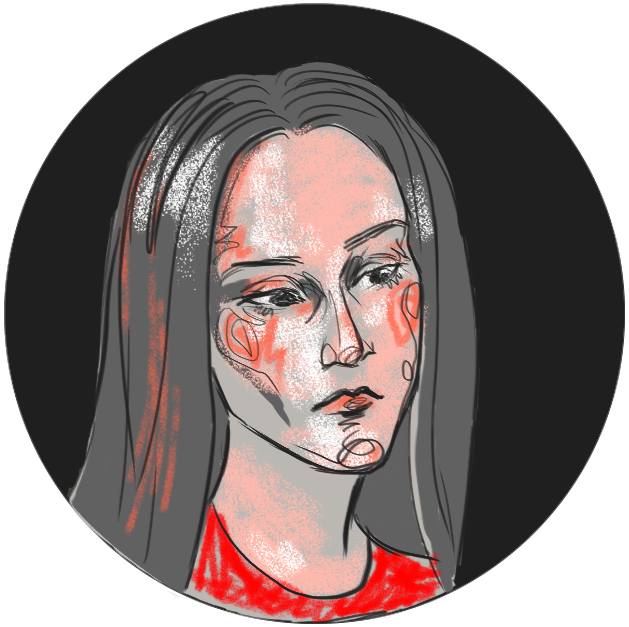During the entirety of Yulia’s life, the president of Belarus was Alexander Lukashenko. All 26 years of her life. His portrait hung at her school, at her university, and if the company where Yulia worked as a software engineer wrote software for some government institutions, they also had Alexander Lukashenko’s portrait on the wall.
By the age of 25, Yulia realized that she couldn’t even imagine Belarus without this president. She tried, but she couldn't. If not Lukashenko, then who?
Would a military junta come to power? A pro-Russian or a nationalist one? Would Belarus become a part of Russia or, on the contrary, would it declare a decisive turn away from its eastern neighbor and a desire to join NATO? And then what? Civil war? Would the town of Bobr secede and attempt to join the Smolensk oblast in Russia? And the western regions, on the contrary, would begin to speak the most authentic version of the Belarusian language so that Russian-speaking citizens wouldn’t even be able to get a sick note from a hospital?
Or not? Would the country be led by a famous intellectual, like the Czech Republic was led by Václav Havel? Even Svetlana Alexievich, why not? On her reputation alone as an outstanding writer and Nobel laureate, will she carry out democratic reforms, establish the peaceful transfer of power every four years and retire?
Or, suppose Svetlana Tikhanovskaya becomes president. She would use all her power to release political prisoners, organize new fair elections with the participation of all the popular politicians in Belarus. Viktor Babariko would win the second election, and the confident hand of an experienced businessman would lead the country not only to political reforms but also to economic ones. Could it be? Why not?

Yulia was trying to imagine all of this, but she could only imagine replacing the head of the country. But how will the country change? What will be shown on TV? Will prices rise? Will people be kinder to each other or become unusually intolerant for Belarusians?
Yulia had many grievances against President Lukashenko’s rule: fraudulent elections, unexplained disappearance, censorship, suppression of protests, persecution of political opponents, absurd criminal cases, just take the arrest of the Belgazprombank art collection - the authorities arrested Chaim Soutine's “Eve”, “Heaven” by Marc Chagall, other paintings by great Belarusian artists that Viktor Babariko bought all over the world to bring home to Belarus. He brought them back - and now, after expressing his presidential ambitions, he was arrested and accused of trying to export artwork belonging to the motherland. This infuriated Yulia, but she could not imagine her country being any different. And that infuriated her more than anything else.

An American can easily imagine that if the Democrats come to power, taxes will go up, but health insurance will improve. And if the Republicans come to power, taxes will most likely be reduced, but health insurance will get worse. Yulia could not imagine anything like that in Belarus. And if you cannot imagine any political change in your country, it’s time to immediately transform the political system.
That is why Yulia wanted change. She participated in protests both before and after the ill-fated election on August 9. She was thrown in jail multiple times. Yulia’s protests haven’t changed anything, but Yulia herself changed. The thing is, the average person is afraid of prison, even spending a few days behind bars is terrifying. Fearing even a short arrest, a regular citizen will vote as he was told, he will not protest (even when that protest is necessary), and he sincerely believes in what he is told to believe. A person who has experienced prison ceases to be afraid. The fear is still there, but it’s different.
Yulia realized this during one of her many stints in jail, months after her first experience in August 2020. One day, Yulia needed to wash her hair in prison, but she didn’t have access to hot water. Without a second thought, Yulia twisted the valve off the radiator delivering heat to her cell, filled a couple of cups with the hot, rusty water and washed her hair. She thought to herself, “I can do this now.” Could you have done that? Have you ever done anything like that?
In August 2020, Yulia no longer expected the police to be polite, so she was not frightened when the riot policemen screamed and cursed at her.
Yulia no longer expected the judge to deal with the falsified police report. Therefore, when the judge announced her sentence - eight days of prison - and wrote down her decision in the court order using a pencil (so that it could be corrected at any moment according to the will of her superiors), Yulia was not surprised, she didn’t even feel the burning injustice.
When the repressions began to increase in the fall of 2020, Yulia did not delude herself. She did not expect that the arrests were about to magically end, she simply packed her things and emigrated to another country, keeping her remote position at her company.
And now we know what a future Belarus, a Belarus without Alexander Lukasheno will look like. Many young women from neighboring countries will return. These women will not harbor any illusions and will not be afraid of day-to-day problems. If necessary, they will be able to wash their hair with water drained from a rusty radiator.



